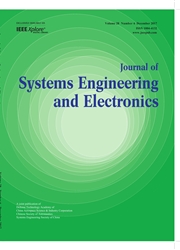

 中文摘要:
中文摘要:
In the need of some real applications, such as text categorization and image classification, the multi-label learning gradually becomes a hot research point in recent years. Much attention has been paid to the research of multi-label classification algorithms. Considering the fact that the high dimensionality of the multi-label datasets may cause the curse of dimensionality and will hamper the classification process, a dimensionality reduction algorithm, named multi-label kernel discriminant analysis(MLKDA), is proposed to reduce the dimensionality of multi-label datasets. MLKDA, with the kernel trick, processes the multi-label integrally and realizes the nonlinear dimensionality reduction with the idea similar with linear discriminant analysis(LDA). In the classification process of multi-label data, the extreme learning machine(ELM) is an efficient algorithm in the premise of good accuracy. MLKDA, combined with ELM, shows a good performance in multi-label learning experiments with several datasets. The experiments on both static data and data stream show that MLKDA outperforms multi-label dimensionality reduction via dependence maximization(MDDM) and multi-label linear discriminant analysis(MLDA) in cases of balanced datasets and stronger correlation between tags, and ELM is also a good choice for multi-label classification.
 英文摘要:
英文摘要:
In the need of some real applications, such as text categorization and image classification, the multi-label learning gradually becomes a hot research point in recent years. Much attention has been paid to the research of multi-label classification algorithms. Considering the fact that the high dimensionality of the multi-label datasets may cause the curse of dimensionality and wil hamper the classification process, a dimensionality reduction algorithm, named multi-label kernel discriminant analysis (MLKDA), is proposed to reduce the dimensionality of multi-label datasets. MLKDA, with the kernel trick, processes the multi-label integrally and realizes the nonlinear dimensionality reduction with the idea similar with linear discriminant analysis (LDA). In the classification process of multi-label data, the extreme learning machine (ELM) is an efficient algorithm in the premise of good accuracy. MLKDA, combined with ELM, shows a good performance in multi-label learning experiments with several datasets. The experiments on both static data and data stream show that MLKDA outperforms multi-label dimensionality reduction via dependence maximization (MDDM) and multi-label linear discriminant analysis (MLDA) in cases of balanced datasets and stronger correlation between tags, and ELM is also a good choice for multi-label classification.
 同期刊论文项目
同期刊论文项目
 同项目期刊论文
同项目期刊论文
 期刊信息
期刊信息
